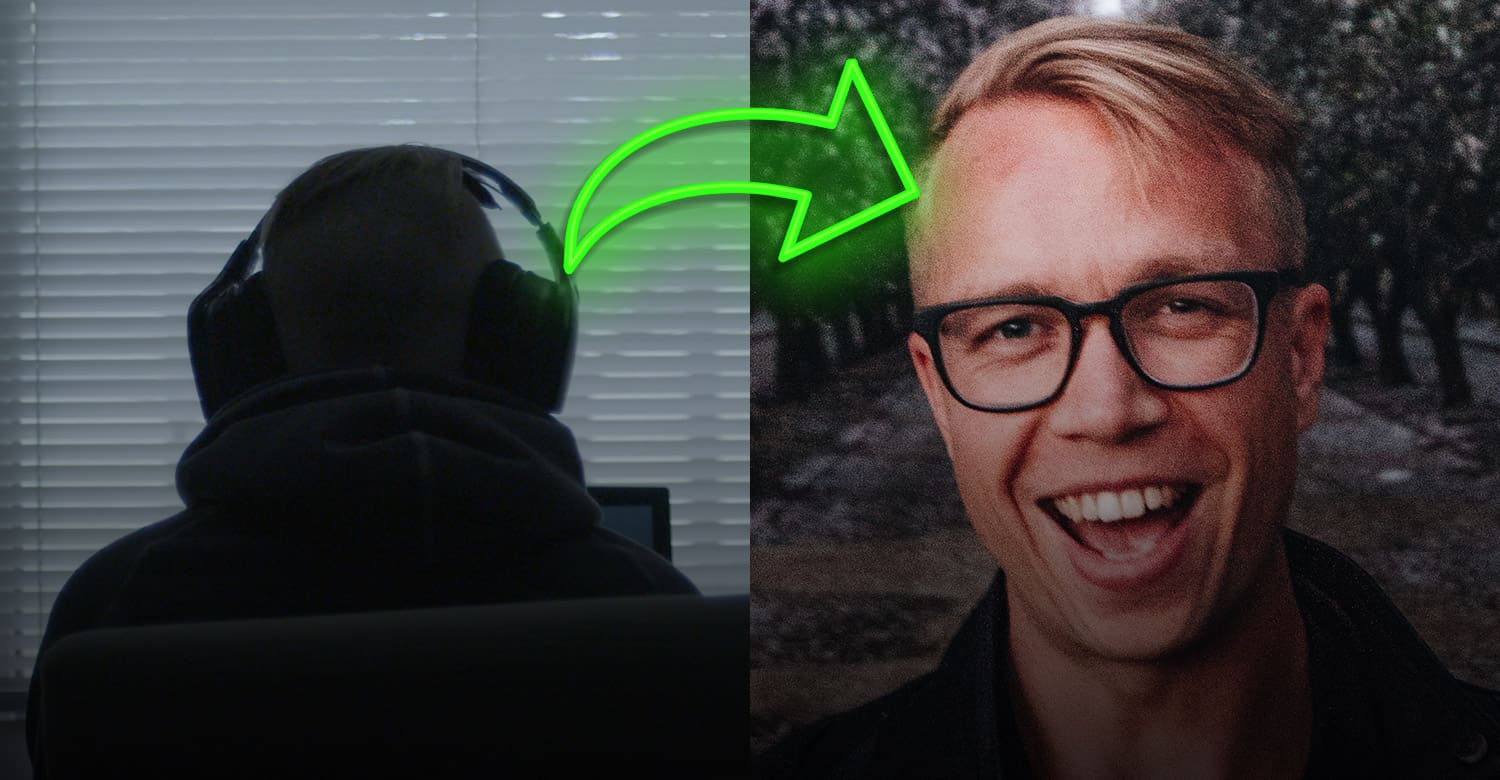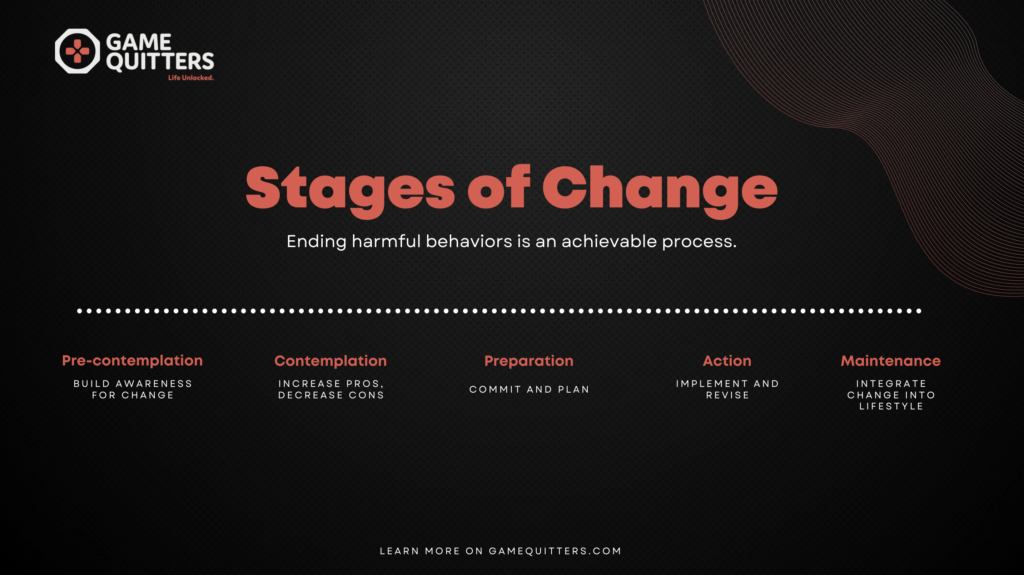
The Stages of Changing Unhealthy Habits
There is a widely-recognized process through which people can overcome addiction and other unhealthy habits. It is known as the ‘stages of change’ or ‘transtheoretical model’. The key to achieving and maintaining a change in behavior is to find a way to stay motivated.
Table of Contents
In this article, we look at the various stages of change to show how working through each element in the process can help you, or a loved one, cut down or quit video games.
What is the transtheoretical model (TTM)?

In the late 1970s, two researchers – Prochaska and DiClemente – examined the experiences of two groups of smokers. The first group was those who managed to quit on their own, while the other group was those who required treatment. They wanted to understand why some people were capable of quitting on their own.
It was determined that ultimately people stop smoking if they are ready to do so, which sounds obvious. But, through their research, they discovered that changing behaviors doesn’t happen quickly. Instead, it is a gradual process that happens in a cycle.
Therefore, what has become known as the ‘transtheoretical model’ (TTM) or ‘stages of change’, was born.
What are the stages of change?
There are six stages of change in the model: precontemplation, contemplation, preparation, action, maintenance and relapse.
These stages can be represented as a cycle. In theory, people should go through them in order. However, in reality, people bounce between different stages, go backwards and forwards and can even be in more than one stage at a time.
For each stage there are specific strategies to help someone, such as you or a loved one, understand where you are in the process and move onto the next stage.
These stages of change examples show how changes in addictive behaviors can be encouraged and managed.
Precontemplation stage
You do not consider your behavior to be a problem. You may be in denial because you have not yet experienced any negative consequences. People around you – friends, family members or a therapist – may have commented that your gaming is a problem, but you think it’s fun and are not interested in cutting down or quitting. However, harmful repercussions will eventually arise and push you towards the contemplation stage.
Contemplation stage
You are starting to think about changing, reducing or quitting gaming but you are still undecided. You might be thinking about the benefits of changing your habits and ready to hear some strategies for managing or quitting. You might be open to non-judgmental information rather than confrontation. At this stage, it can be very useful to make a list of the pros and cons of gaming.
Preparation stage
You have moved forward to planning and preparing for carrying out changes. You may be researching strategies to reduce or quit gaming and getting support. You might be telling friends of your plans and may be looking for help online, or for a support group or forum.
Action stage
This is the stage where real change starts to happen as you develop new behaviors. Embracing and engaging new habits takes effort. But you can talk about your ‘old habits’ in a negative way and measure your progress at changing. This stage is typically a stressful time so you will need support and new ways of coping with stress. However, it can also be an exciting time as you regain control of your life and start a new chapter.
Maintenance stage
You are upholding the intentions made during the preparation stage and sticking to the behaviors introduced in the action stage. It can be a challenging time. After a while, you may become complacent and begin to think that a small ‘cheat’ on your old behavior is no big deal. Life’s problems may tempt you back into old harmful ways of coping with stress. This is the stage at which you must keep practicing recovery actions and new healthy behaviors or risk relapse into old habits.
Relapse stage
This additional stage is included to recognize that for many people, there will be lapses or relapses before they can remain firmly in the maintenance stage. Relapse can be difficult and painful, and devastating for those close to you to witness, but must be understood as part of the process.
The outcome of the stages of change addiction process is highly individual. Some people will be able to cut down and control their video game use without harmful consequences. Whereas for others, total abstinence will the only way to keep their addiction under control.
Celebrate each small victory
When you make these changes, you should reward each small victory. For example, if you are choosing to take a 30-day break from gaming, you can cross another day off the calendar, watch your progress and give yourself a small reward for each successful day. Even if the reward is just high fives and praise, a celebration of each small victory will help keep you on track to success.
Need help?
The stages of change model can help you overcome your gaming addiction, or another type of digital addiction, as long as you reach and stay in the maintenance stage.
If you need help getting gaming and screen time under control, book a Gameplan call to discuss your situation. Limited spots are available.
